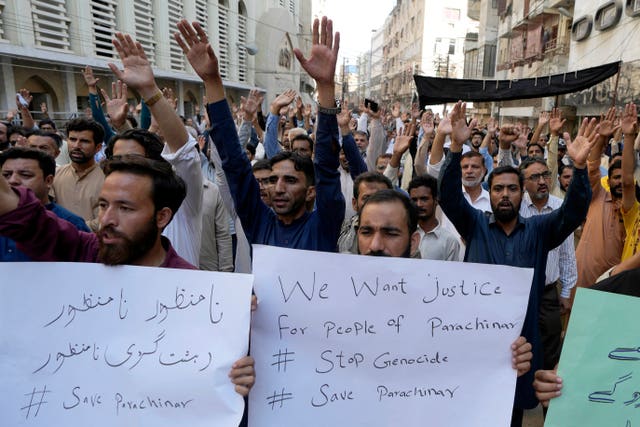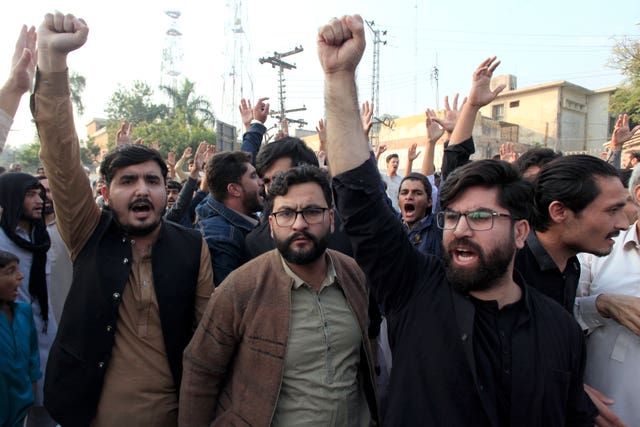
Protesters in Pakistan’s north-west have chanted anti-government slogans as funeral prayers were held for 42 Shia Muslims who were ambushed and killed by gunmen a day earlier in one of the region’s deadliest such assaults in recent years.
The victims were travelling in a convoy of several vehicles from the north-western city of Parachinar to Peshawar, the capital of Khyber Pakhtunkhwa province, when the attack took place on Thursday.
Those killed included six women, and 20 others were injured.

Survivors said the assailants emerged from a vehicle and sprayed the buses and cars with bullets.
Nobody has claimed responsibility for the attack and police have not identified a motive.
Thursday’s attack took place in Kurram, an area where Shia Muslims dominate. Sectarian clashes between the group and Pakistan’s majority Sunni Muslims have killed dozens of people in recent months.
Tribal elder Jalal Bangash said the bodies began arriving in the city on Thursday evening.
The Shia community group Anjuman Hussainia Parachinar announced three days of mourning.
Coffins were draped in white cloth that bore red calligraphy. It read “Labbaik ya Hussein”, a Shia expression in remembrance of the seventh-century martyrdom of the Prophet Muhammad’s grandson, Hussein, that gave birth to their faith.
Locals carried the coffins aloft through Parachinar as people thronged the streets. Markets, shops, roads and schools were closed. Locals and relatives of the victims staged a sit-in, demanding action against the perpetrators.

Ali Ghulam lost his nephew in the attack.
“He was a very innocent and noble man, only 40, and left behind small kids,” said Ghulam. “He was working to feed his children, he never fought with anyone. Now we are worried about his family and what we will do for them.”
Protests kicked off in parts of the city of Parachinar, with people chanting anti-government slogans. Some people set alight check posts and the gate at the entrance. Elders have called for calm.
Shia Muslims make up about 15% of the 240 million population of Sunni-majority Pakistan, which has a history of sectarian animosity between the communities.
Although the two groups generally live together peacefully, tensions have existed for decades in some areas, especially in parts of Kurram.
Dozens of people from both sides have been killed since July when a land dispute erupted in Kurram that later turned into general sectarian violence.


House Rules
We do not moderate comments, but we expect readers to adhere to certain rules in the interests of open and accountable debate.
Read the rules hereLast Updated:
Report this comment Cancel